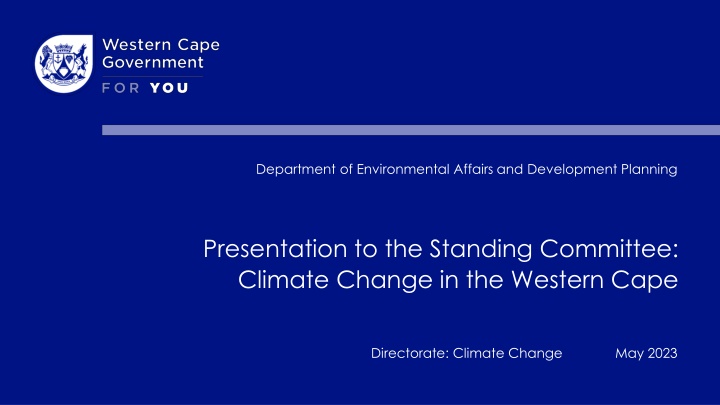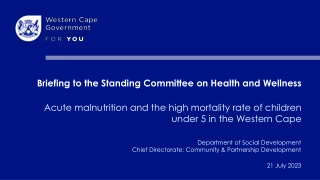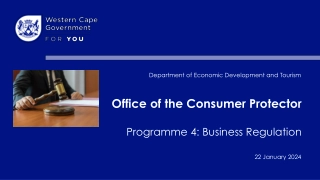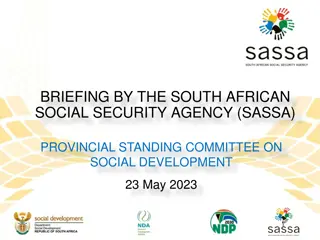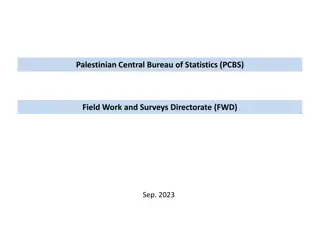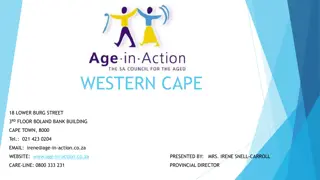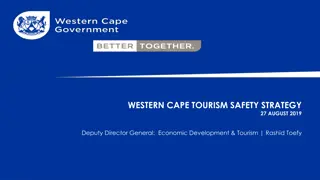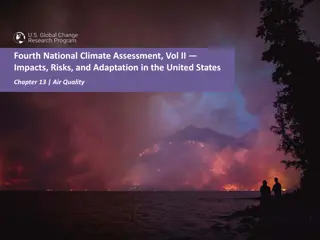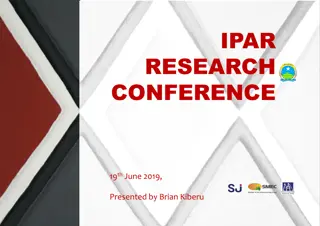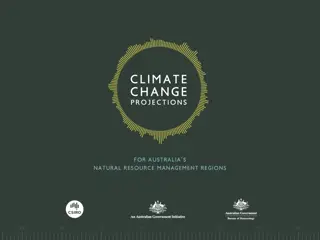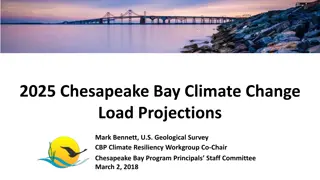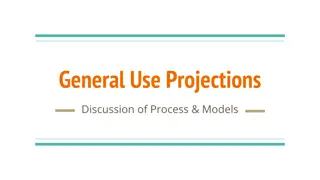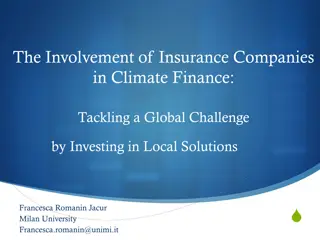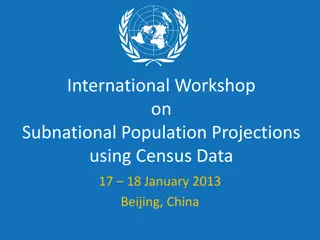Climate Change Impacts and Projections in Western Cape Directorate 2023
Climate Change presentation highlights real impacts such as sea level rise, increased fire risks, and projected scenarios like extreme temperatures, droughts, and greenhouse gas emissions in the Western Cape. Projections indicate significant challenges ahead, urging action towards adaptation and mitigation strategies to address the changing climate conditions.
Download Presentation

Please find below an Image/Link to download the presentation.
The content on the website is provided AS IS for your information and personal use only. It may not be sold, licensed, or shared on other websites without obtaining consent from the author.If you encounter any issues during the download, it is possible that the publisher has removed the file from their server.
You are allowed to download the files provided on this website for personal or commercial use, subject to the condition that they are used lawfully. All files are the property of their respective owners.
The content on the website is provided AS IS for your information and personal use only. It may not be sold, licensed, or shared on other websites without obtaining consent from the author.
E N D
Presentation Transcript
Department of Environmental Affairs and Development Planning Presentation to the Standing Committee: Climate Change in the Western Cape Directorate: Climate Change May 2023
Climate Change is real Sea level rise 0.25m by 2050 IPCC, 2022 1 to 2 more extreme fire risk days per year IPCC, 2022 2 Climate Change Directorate 2023
IPCC AR6 projections for 2030 (worst-case scenario) - Droughts 21% more likely than 1995 - 7% decrease in total rainfall as compared to 1995 - Annual sea level rise of 0.25m - 2 more extremely hot days (above 40 C) and 8.5 more very hot days (above 35 C) per year relative to 2005 - Droughts 13% more likely than 1995 - 4% decrease in total rainfall as compared to 1995 - 2 more extremely hot days (above 40 C) and 6 more very hot days (above 35 C) per year relative to 2005 - Droughts 28% more likely than 1995 - 7% decrease in total rainfall as compared to 1995 - 1 more extremely hot day (above 40 C) and 3.5 more very hot days (above 35 C) per year relative to 2005 - Droughts 11% more likely - 4% decrease in total rainfall as compared to 1995 - 1 more extremely hot day (above 40 C )and 4 more very hot days (above 35 C) per year relative to 2005 IPCC Interactive Atlas https://interactive-atlas.ipcc.ch/ - Sea level rise of 0.25m by 2050 - Potential acceleration thereafter 3 Climate Change Directorate 2023
Projected rise in temperature What to expect (~2.5deg C or more) You are here (~1deg C higher) Historic trend From: Updated Climate Change Trends and Projections for the Western Cape (Dept of Agric, 2022) 4 Climate Change Directorate 2023
Projected increase in drought conditions What to expect (>4 extra dry years / decade) You are here Historic trend (~1 extra dry year/decade) From: Updated Climate Change Trends and Projections for the Western Cape (Dept of Agric, 2022) 5 Climate Change Directorate 2023
Greenhouse Gas (GHG) emissions in the Western Cape Energy (including Transport) Industrial Process and Product Use (IPPU) Agriculture, Forestry and other Land Use (AFOLU) Waste (including solid waste and wastewater treatment) Data availability and quality remains a challenge and there are some gaps in the picture some of these can be filled by using remote sensing, AI techniques and satellite data 6 Climate Change Directorate 2023
Where do we aim to be? Net Zero by 2050 Access international climate finance Socio-economic and socio- environmental resilience (water and food security resilience) Energy security based on renewable electricity generation Low-carbon economy based on a Just Transition Climate Adapted Infrastructure 7 Climate Change Directorate 2023
The Western Capes policy response WCCCRS & Implementation Plan SmartAgri Review & update 2050 Emissions Mitigation Pathway Under2 Coalition (Net Zero by 2050 commitment) WCIDWRP (15-year water plan) G4J Energy Security and Net Zero, explore Green Hydrogen, low-carbon exports WC Infrastructure Strategy built environment & infrastructure approach Municipal support 8 Climate Change Directorate 2023
Legal Mandate in particular the Climate Change Bill, 2022 Currently no overarching legislation on climate change, in particular covering requirements for provinces and municipalities There is legislation in place for components of climate change NEM: AQA GHG regulations and mitigation plans Disaster Management Amendment Act Adaptation as it relates to disaster risk reduction SPLUMA Spatial Resilience Carbon Tax (and Carbon Offset Regulations) GHG emissions, but currently limited to industry and SOEs The Climate Change Bill requirements for provinces and metro and district municipalities Institutional structures: Premier s Intergovernmental Forum as Provincial Climate Change Forum Coordinates climate change responses Provision for a technical Task Team Reports to Presidential Coordinating Council District Intergovernmental Forum functions as Municipal Climate Change Forum Province, Metro and Districts to compile Needs & Response assessment to: assess the extent to which its constitutionally mandated functions are affected by climate change and formulate steps to address these effects in the performance of its functions. Implementation Plan (to be a component of planning instruments, the IEP & IDP) 9 Climate Change Directorate 2023
Municipal readiness District level plans in place for all Districts In the case of some districts, local municipalities have specific plans based on the district plan (e.g. Garden Route) Current focus on Adaptation planning and energy security Mixed progress in terms of IDP responsiveness This map is based on information available to us to date There are also a number of municipalities that are currently developing and / or updating their plans 10 Climate Change Directorate 2023
Western Cape Climate Change Response Strategy & Implementation Plan
The WCCCRS Vision 2050 for all stakeholders Responding to the climate emergency Our Vision is to be a net zero emissions and climate resilient province by 2050, built on an equitable and inclusive economy and society that thrives despite the shocks and stresses posed by climate change Transitioning in an equitable and inclusive manner to net zero emissions by 2050 Reducing climate risks and increasing resilience Enabling a Just Transition through public sector, private sector and civil society collaboration 12 Climate Change Directorate 2023
Strategy & Implementation Plan WCCCRS: Implementation WCCCRS: Vision 2050 (2022) Plan (2023) Actions that lay the framework for climate resilience for Jobs, Safety and Well-being Guiding Objectives of the Vision are supported by key responses Seeking Cabinet and private sector endorsement upon conclusion WCCCRS: Mitigation and Adaptation Pathways (2023-25) to guide target setting and sector plans 13 Climate Change Directorate 2023
Implementation Plan Response Programmes The Implementation Plan sets out 20 response programmes Identifies the relevant institutional responsibilities Identifies gaps in knowledge or absence of engagement platforms Includes private sector and general public Adaptation Plan Disaster Management Community Resilience Resilient Built Environment Coastal Management Ecosystem-based Adaptation & Nature-based Solutions Water Security Net Zero by 2050 Green and Blue Carbon Low-carbon Economy Energy Security Transport Sector Waste Sector Agriculture Health Sector Governance Climate Finance Monitoring, Evaluation and Review Climate Change Communication and Awareness Skills Development 14 Climate Change Directorate 2023
Vision 2050 Climate Action Pathway Responses Objective Responses Responding to the climate emergency Resilient informal settlements Reduce coastal risks Climate-proof new-build projects Climate-proof spatial planning and development planning Disaster Risk Management Systems Climate-proof Disaster Risk Management Plans Net Zero emissions by 2050 pathway Emissions reduction strategy for general waste streams Reduce greenhouse gas emissions from organic waste Soil carbon sequestration including conservation agricultural practices Climate-proof new-build projects Local manufacturing in support of low-carbon activities Strategy for reducing short-lived climate forcers Climate resilient, low-carbon economic development Reduce the GHG footprint in the built environment Reduce the GHG footprint of the transport sector Transition in an equitable and inclusive manner to net zero emissions by 2050 15 Climate Change Directorate 2023
Vision 2050 Climate Action Pathway Responses Objective Reducing climate risks and increasing resilience Actions Resilient informal settlements Reduce coastal risks Low-carbon energy at household level Manage ecosystems, wilderness areas and the conservation estate Remove alien vegetation Ecological Infrastructure Investment Framework Reporting mechanisms, with a specific focus on gender disaggregated data SmartAgri Plan Adaptation Pathway Water security plan Natural systems in urban environments Adapt our health systems Disaster Risk Management Systems Water resource allocation and management Food system resilience Climate-proof Disaster Risk Management Plans Restore watercourses Wildfire management 16 Climate Change Directorate 2023
Vision 2050 Climate Action Pathway Responses Objective Actions Enabling a Just Transition through public sector, private sector and civil society collaboration Access international climate finance Achieve universal access to basic services Fossil fuel disinvestment by public funds Education, training and skills development Monitoring & Evaluation Municipal access to renewable energy Climate change related data, with a specific focus on gender disaggregated data Sector-specific climate change response strategies Energy resilience and an energy transition Emissions reduction strategy for general waste streams Community-based adaptation National and international networking Climate change governance framework Climate-responsive transport sector Increasing awareness Climate Assembly Capacitate local government Sustainable Public Procurement Private sector innovation and investment in climate-proof development projects Innovative public finance tools Wildfire management 17 Climate Change Directorate 2023
2050 Emissions Pathway Phase 1 : Vision Development Development of a 2050 Vision for the Emissions Pathway Exercise Stakeholder analysis Identification of key sectors and sub-sectors to be included Phase 2 : Development of an GHG Emissions Profile and Inventory for the Western Cape Energy, including transport Waste Industrial Process and Product Use Agriculture, Forestry and Other Land Use (AFOLU) Phase 3 : Identification of Mitigation Measures and Modelling Exercise Mitigation measures linked to key sectors Including costing, job potential, adaptation and social co-benefits Modelling backwards from net-zero by 2050 Sector specific modelling exercises, including RE targets and transport 18 Climate Change Directorate 2023
Adaptation programmes Climate Change has been defined as an Enterprise Risk for the WCG and has to be included on the organisation risk register and all Departments need to respond to this risk (2017) Climate Change reporting needs to be included in all departmental APPs currently only in the narrative and often superficial, but aim is to ensure that all departments include it in operational planning. PT Circular 2022 instruction on APP & MTEC presentation Current work 22/23 The Water Security Risk has been deeply articulated linked with the development of the WCIDRP (Water Resilience Plan) The Agricultural risk is fully unpacked in SmartAgri and is being revised and the models updated for improved response WC Ecological Infrastructure Investment Framework (EIIF) determining the most beneficial interventions for resource security and climate resilience, restoration as severe weather buffer, wildlands-urban interface risk reduction WC Coastal Management Programme and the Estuarine Management Plans reducing risk of coastal processes and extreme weather events to infrastructure, dealing with pollution, fisheries support, coastal livelihoods, defending tourism potential WC Disaster Risk Profile being updated increased focus on Climate Change as a risk multiplier WC Infrastructure Plan to include climate responsive approach WC Climate Change Adaptation Pathway Funding insufficient or NOT confirmed for Climate Change portfolio of programmes across WCG & Climate Change budget tagging methodology not defined 19 Climate Change Directorate 2023
What is expected of WCG? Overall coordination Communication and Awareness Climate Change Bill unpack, implement and respond Municipal support Knowledge hub Technical guidance (EIAs, spatial planning, facilities, disaster risk) R&D (DoA, DEDAT, CCT) Targets Sector targets , private sector engagement and enforcement Indicators & reporting Facilitate access to international climate finance Identify opportunities (especially with Municipalities) Utilise regional alignment internationally (Bavaria, California etc) Liaise with DFFE & bilaterals Global Climate Fund scale proposals Climate Governance Provincial structures for Climate Change governance, M&E, funding conduit, policy alignment The people s voice (including Youth) Environmental Forum Engagement with private sector 21 Climate Change Directorate 2023
Climate Change in the Western Cape What is WCG currently doing to get there? WCCRS Implementation plan Mainstreaming in WCG e.g. APP assessments, spatial planning, EIA moving towards climate budget tagging Air Quality & GHG Emissions tracking (DEA&DP) Growth for Jobs Energy Workstream (WCG) Energy Security Risk and the move to renewables is being unpacked in the G4J which includes a stated target of net zero by 2050 SmartAgri (DoA) Global Green & Healthy Hospitals (DoHW) Property Efficiency Reporting (Department of Infrastructure) CapeNature Landscape initiatives & biodiversity restoration (DEA&DP) Supporting Biosphere Reserves (DEA&DP) WCCRS Communication strategy & Private sector engagement Green Hydrogen Economy embraced (DEDAT) Growing focus on Natural Disaster Risk reduction (DLG & DEA&DP) Draft WC Policy for Coastal Risk Management (DEA&DP) Western Cape EV Strategy and Provincial Land Transport Framework to address clean transport options (WCMD) Sector Plans incorporating Climate Change Responses including Air Quality Management Plan, Integrated Waste Management Plan, Sustainable Water Management Plan etc This is not an exhaustive list, but highlighting key areas of action within the WCG operations 22 Climate Change Directorate 2023
